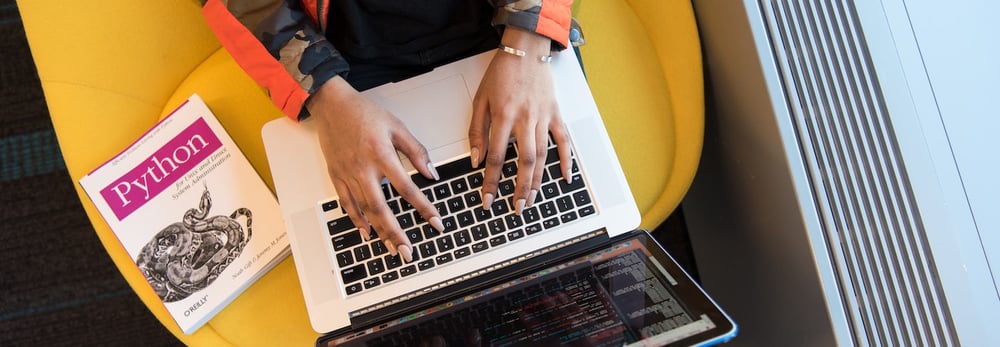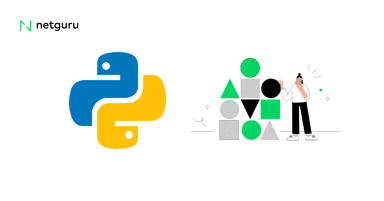Python-Based CMS - Is It Worth It?

Building an intuitive and easy-to-use CMS is a challenging project. And this challenge starts with choosing the right technology. Let’s start from the beginning.
What is a CMS?
A content management system - better known as a CMS - is a kind of software that’s designed for the creation and modification of digital content. Among its wide variety of features, it usually offers publishing options, version control, search engine optimization, access control, and different design templates. It streamlines the content creation and publishing processes by providing a simple user interface that supports your marketing strategy, without requiring any advanced technical knowledge from users.
What factors should you pay attention to when choosing a technology to build a CMS?
There are several factors worth considering when selecting a technology to build a CSM:
Core functionality and managing assets
A good CMS should provide multiple handy out-of-the-box functionalities; this will make working with content easier and more robust. It should also allow for easy asset management.
User interaction
The CMS should be intuitive and user friendly; it should provide self-explanatory ways to manage content and even add new subpages.
SEO
A good CMS should be prepared for SEO. The page structure, meta tags, and other auto-generated content have to be SEO-friendly.
Integration with other systems
The CMS should be a place gathering in one spot different external services and providers necessary for your business to function, such as payment gateways or social media integrations.
Popularity
It’s super important to choose a technology which is backed by a large community, offers lots of integrations and extensions along with easy-to-find manuals.
Experts
You need to have access to a broad market of IT specialists who will help you create your ideal team and be able to fill in any rotation gaps.
Performance
The selected technology should start performing right out of the box, and be easy to install and deploy without bearing additional expenses on external support.
Cloud storage
You might need a wide range of cloud solutions for installing and storing the entire system.
Security
It’s safer to select a full-fledged technology - one that has already been tested in many different areas and is supported by a community that deals with any new bugs.
All of these factors appear to be outstanding in Python development.
Python’s superpowers in general
According to the TIOBE Index, Python is the fastest growing programming language these days. It is an extremely popular, general-purpose language heavily used by some of the biggest players in the world like Google, Facebook, Spotify, and Netflix. Being user-friendly and easy-to-work-with makes it highly efficient to not only find experienced employees but also to train new ones.
Why is Python a good language of choice for creating a CMS?
1. Maturity
Python has two big players in the world of CMSs: Wagtail and Django CMS. Both are well-tested and mature, quality solutions, with a large community of customers, editors and - above all - developers who are constantly working on new features and releasing updates and bug fixes. This is important because it makes the software even more functional and reliable.
2. Ease of use and speed
Python frameworks are easy to adapt and convert into a tailor-made CMS, while at the same time act like building blocks for programming. This is extremely helpful when it comes to fast delivery with a limited team, as you can have a lot of functions, like contact forms, WYSIWYG editor or page hierarchy without coding, since they are already implemented.
3. Prebuilt admin dashboard
Both Wagtail and Django CMS are built on top of the Django framework which comes with a prebuilt admin dashboard. This is a huge advantage in terms of the speed of developing a CMS that has a built-in space for admins to manage content, users, and so on. You can get a sneak peek by clicking on the links: DjangoCMS/Wagtail.
4. Advanced and ready-to-use features
The biggest advantages of Python frameworks include: simplicity of deployment, the availability of cloud solutions (like AWS, GCP or Heroku) and a lot of single-click tools that make it possible to establish proper CI/CD pipelines for high degrees of automation in the process of delivering new code. These and many other things guarantee that your product will be well-tested and resistant to time.
What is crucial from business perspective?
All of these points are not only significant for devs, but also crucial from a business perspective.
- When you use a mature and relatively secure framework backed by so many experts, you don’t have to spend a lot of time and money on any additional support.
- You also have more specialized developers to choose from. Looking for someone to fill a vacancy is not so problematic.
- The ease of use and many built-in features already available in the framework make development go much faster. It’s also more efficient and less costly.
- The further development of your CMS also becomes simpler, so you can think about unwinding its full potential, making it as made-to-measure as possible.
Remember: if you don’t adjust the technology required for building a CMS properly, this may result in a lengthier development and very poor support in the case of a critical situation. There’s also a big chance that you will be dramatically limited by its functions, so scaling may be a nightmare. You might spend a lot of money on solving problems that wouldn’t have occurred if you had just selected a better option.
This is why creating a Python-based CMS may be the safest alternative.
Powerful examples of CMSs
And here are some powerful examples of other CMSs - besides Wagtail and Django CMS - that also prove this point.
1. Mezzanine
This is a BSD-licensed, Django-based CMS, which is highly flexible and extendable. It features an intuitive, consistent interface for managing content and provides a great level of support for its users. This platform is also really efficient because most of its functions are available by default.
2. Ikaaro
This is a comprehensive, multilingual app - highly configurable with a wide range of capabilities, including high level modules, like forums or wikis. It features access control, metadata, intuitive document management, and much more.
3. Kotti
This CMS is not only super simple to use, but also provides automated workflows, a great level of security, and data hierarchies that are pretty easy to understand. It includes a user-friendly interface, so it’s easy for a user to navigate through the content. Moreover, it’s been translated to many languages, is highly customizable, and very scalable.
Python vs. other other languages and frameworks
In terms of content management systems (CMS), it's crucial to assess various programming languages and frameworks before embarking on a development journey.
When considering Python CMS solutions, a comparative analysis with other languages and frameworks becomes pivotal. Python stands out notably in this comparison, demonstrating unparalleled ease of use, robust community support, and a wealth of available tools.
As the Django web framework, a key player in the Python ecosystem, gains prominence, developers find an ideal foundation for constructing dynamic and responsive web pages. The lightweight nature of Python-based CMS ensures efficient content management without sacrificing performance. Choosing Python for CMS development emerges not only as a strategic decision but also as a gateway to a versatile and powerful set of tools, making it a favorable choice in the landscape of content management system software.
Choosing Python for creating a CMS
So, is it worth creating a CMS in Python? Definitely, yes. Of course, choosing the right technology should always be based on your individual goals, strategy, and the nature of your project. There’s no single solution that is perfect for everything. However, we might assist you in finding the most adequate one.
If you need any help regarding this issue - let us know, and we’ll figure out the best option for you together.















-873149-edited.jpg?width=50&height=50&name=Tomaszuk%20Daniel%201%20(2)-873149-edited.jpg)





